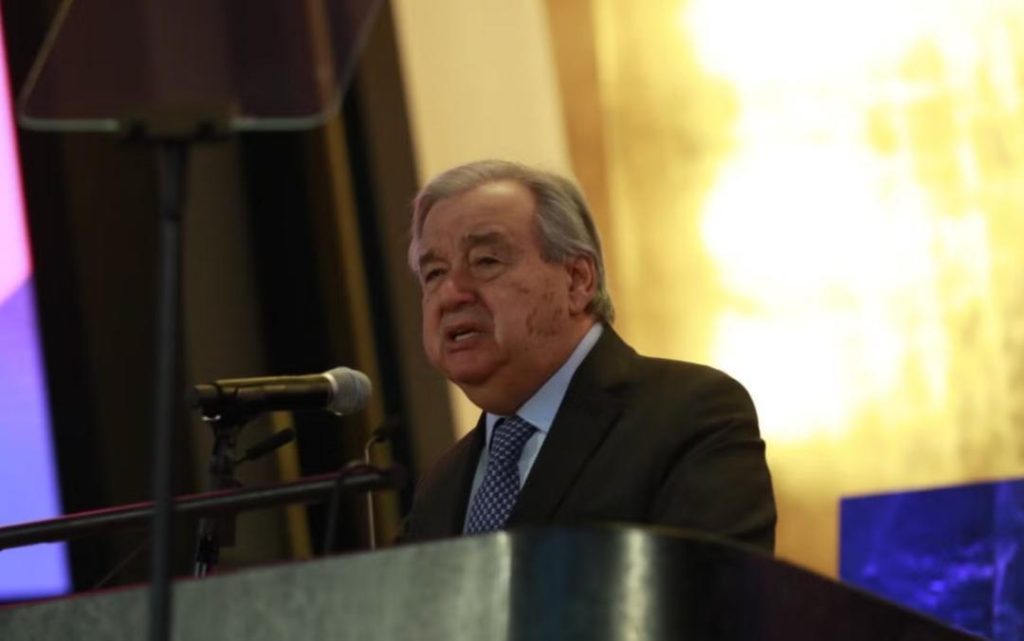
Title: Eradicating extreme poverty for women would take 130 yrs: UN chief
On the occasion of International Women’s Day, United Nations Secretary-General Antonio Guterres expressed his concerns about the fragile progress made by women in breaking barriers, despite facing numerous challenges. He emphasized that violence, discrimination, and economic inequality continue to plague societies, and at this pace, eradicating extreme poverty for women would take 130 years. This stark reality underscores the need for collective action to address the ongoing struggles faced by women worldwide.
Guterres’ remarks came amidst a backdrop of increasing violence and discrimination against women, with reports of harassment, assault, and even murder being perpetrated against women and girls. This brutal reality is a stark reminder of the ongoing struggle for gender equality and the need for sustained efforts to protect and promote women’s rights.
The UN Secretary-General’s statement highlights the urgent need for a collective response to address the systemic barriers and biases that perpetuate gender inequality. He emphasized that women’s rights are under attack in every corner of the world, and it is essential for individuals and organizations to come together to fight back against these attacks.
The statistics are alarming, with millions of women and girls still trapped in extreme poverty, facing limited access to education, employment, and healthcare. According to the World Bank, in 2020, 12.7% of women worldwide were living in extreme poverty, compared to 8.5% of men. This disparity is a stark reminder of the need for targeted interventions to address the specific challenges faced by women.
Guterres’ remarks also underscore the importance of addressing the intersectional nature of gender inequality. Women from marginalized communities, including those from low-income backgrounds, indigenous communities, and those living with disabilities, face multiple layers of discrimination that exacerbate their vulnerability to poverty and exploitation.
The UN Secretary-General’s statement is a clarion call for action, highlighting the need for governments, civil society organizations, and individuals to work together to create a more just and equitable society. It is essential to recognize the inherent value and dignity of women and girls, and to take concrete steps to eliminate the systemic barriers that perpetuate gender inequality.
One of the most significant challenges facing women is the lack of access to education and economic opportunities. According to the World Bank, in 2020, only 49% of women in low- and middle-income countries had access to secondary education, compared to 65% of men. This disparity has severe consequences, limiting women’s ability to access better-paying jobs and perpetuating cycles of poverty.
The COVID-19 pandemic has further exacerbated these challenges, with women disproportionately affected by job losses, reduced hours, and increased caregiving responsibilities. The World Bank estimates that women have borne 80% of the burden of unpaid care work during the pandemic, highlighting the need for targeted policies to support women’s economic empowerment.
To eradicate extreme poverty for women, it is essential to address these systemic barriers and biases. This requires a multifaceted approach that involves governments, civil society organizations, and individuals working together to create a more just and equitable society.
Some potential solutions include:
- Increasing access to education and training programs for women, particularly in STEM fields and entrepreneurship.
- Implementing policies to promote women’s economic empowerment, such as paid parental leave, flexible work arrangements, and equal pay for equal work.
- Addressing the intersectional nature of gender inequality by recognizing the specific challenges faced by women from marginalized communities.
- Increasing funding for women’s empowerment programs and organizations that support women’s education, healthcare, and economic empowerment.
- Raising awareness about the importance of gender equality and challenging harmful gender stereotypes and biases.
In conclusion, the UN Secretary-General’s statement highlights the urgent need for collective action to address the ongoing struggles faced by women worldwide. Eradicating extreme poverty for women would take 130 years at the current pace, and it is essential for individuals and organizations to come together to fight back against the attacks on women’s rights. By recognizing the inherent value and dignity of women and girls, and by taking concrete steps to eliminate systemic barriers and biases, we can create a more just and equitable society for all.






